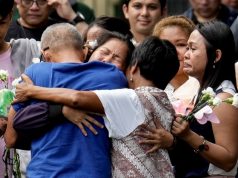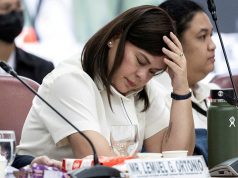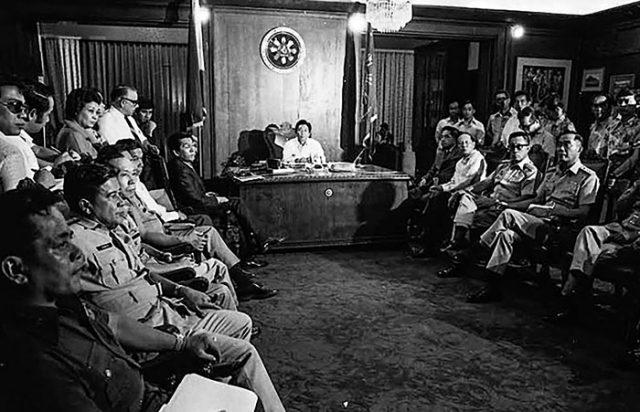
The public expressed alarm over the branding of the Martial Law period as the “Period of the New Society” or “Bagong Lipunan” in classes.
On Twitter, Maria Elena Malvar, a senior high student, shared a portion of a presentation in their literature class that rebrands the Martial Law period.
“Nauna na ang school namin sa rebranding,” Malvar said in a tweet as a reaction to the ABS-CBN’s article where the Department of Education refuted claims that the term “Bagong Lipunan” has been used in the curriculum to refer to the Martial Law period.
Nauna na school namin sa rebranding 🥰 https://t.co/meSJbrJqnZ pic.twitter.com/gxZ79daw8L
— mariaaaa (@6ilina9) October 17, 2022
Based on the material secured by Philstar.com, the first edition of the module was published in 2020 under the watch of former education secretary Leonor Briones.
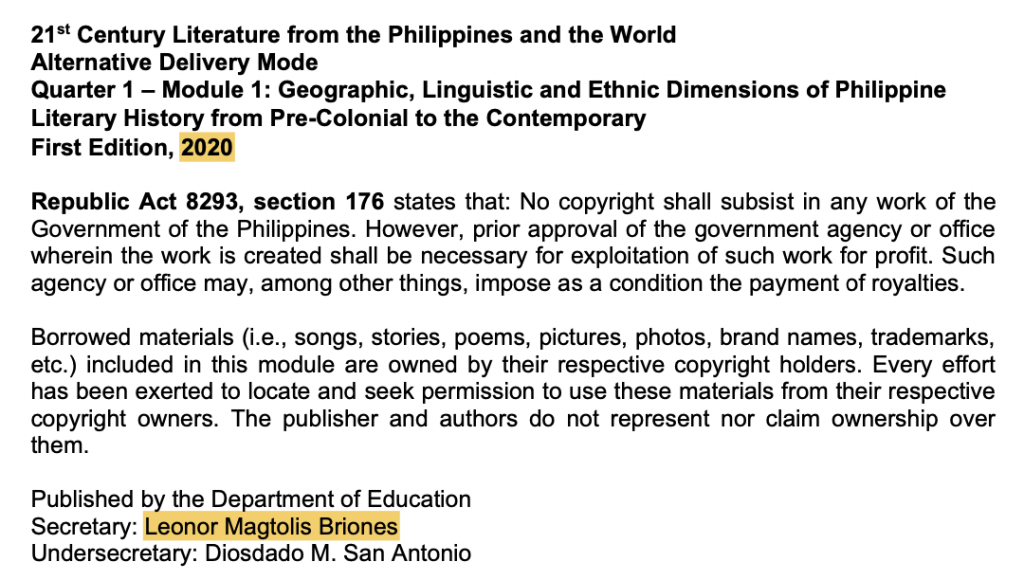
The module contains similar texts featured in the presentation shared by Malvar.
“The period of the New Society started on September 21, 1972,” the module reads. This is the date when the late dictator and father of the current president, Ferdinand Marcos Sr., placed the country under Martial Law.
“Poems dealt with patience, regard for native culture, customs, and the beauties of nature and surroundings. Newspapers donned new forms,” the module continues.
“News on economic progress, discipline, culture, tourism, and the like were favored more than the sensationalized reporting of killings, rape, and robberies. Filipinos before were hooked in reading magazines and comics,” the module says.
A portion of the module also tags The Inquirer, Malaya, and the People’s Journal as crony newspapers.
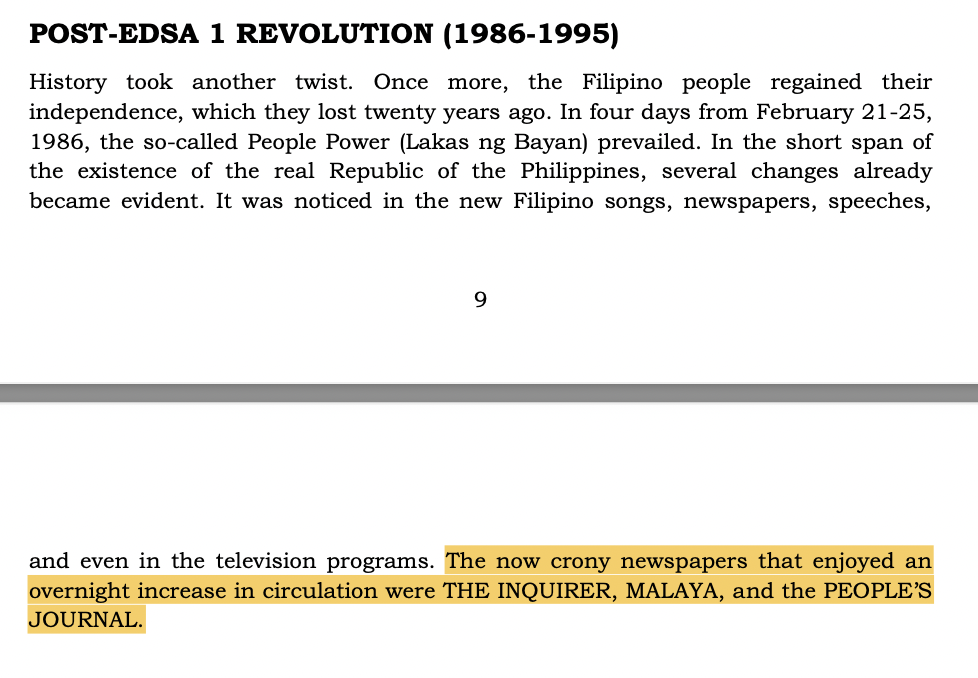
Following the proclamation of Martial Law, Marcos authorized the military to take over the assets of major media outlets nationwide through the letter of Instruction No. 1. This led to massive media censorship.
Historical distortion
Many are opposing this rebranding, seeing it as an attempt to distort history.
“Mas nakakainis din po isipin na doon sa pag-neglect po nila sa humanities, parang nagiging tool ito para sa regime, para kalimutan ang atrocities of the past and para in-enable ang katiwalian sa gobyerno as of now, sa pagbigay ng maling impormasyon sa mga kabataan. Parang ini-indoctrinate po kasi nila ang mga kabataan,” Malvar said in an interview with ABS-CBN.
“This is extremely alarming. They are starting to sanitize one of the bloodiest period of our national history,” a Twitter user wrote.
“Excuse meee, Inquirer, and Malaya, as ‘crony newspapers’?!!! Aside from the silences here in the screwed up periodization (3rd Republic is from 1946-1972), this is historical distortion,” historian Kristoffer Pasion said in a tweet.
“1972-1980 is not the period of a new society. It is the period of thousands of cases of atrocities ruled with tyranny and dictatorship!” said Jonas Abadilla, Deputy Secretary General of the National Union of Students of the Philippines.
“We need more educators inside and outside campuses on ML and HR. We should fight disinformation back even harder,” an online user said.
Rep. France Castro (Alliance of Concerned Teachers) also expressed concern over the replacement of the term “Martial Law” with “new society.”
“Kahit na ito’y literature, dapat factual pa rin ang lalabas dito. At sa pagtuturo ng teachers kung hindi siya magiging critical at not aware of during the martial law times, talagang ma-mi-misinform niya yung ating mga estudyante at hindi na mababanggit halimbawa yung mga different atrocities that happened during those times,” the lawmaker said in an interview with ABS-CBN Rundown.
“Dapat maipaliwanag nung teachaer na sa ‘New Society’ ang characteristic nito ay repression, martial rule, economic downturn, etc.,” she added.
Castro also underscored the critical role played by teachers in ensuring that students are taught factual information.
“Pwede naman itama, itatama lang ang module kasi marami naman talagang modules na may pagkakamali or may errors or distortion kasi iyong panahon na iyon,” Castro was quoted in ABS-CBN report.
Under the Martial Law rule, at least 70,000 people were imprisoned, 34,000 were tortured, and 3,240 were killed, according to Amnesty International.





